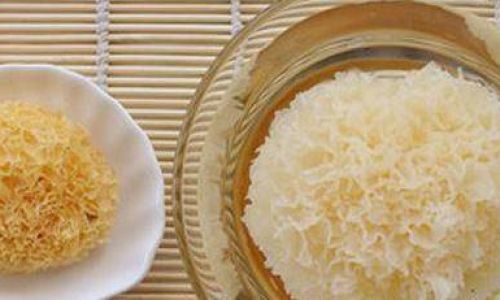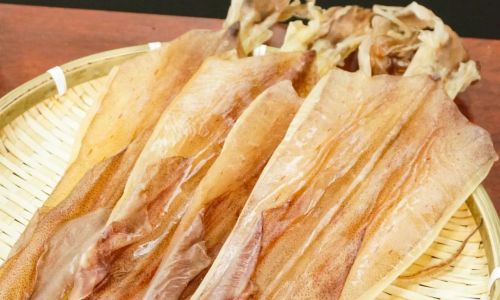Introduction

In the realm of culinary traditions and food safety, there exist numerous questions that hover around the edges of our daily dietary habits. One such query, often posed by health-conscious individuals and culinary enthusiasts alike, pertains to the consumption of soaked Tremella fuciformis, commonly known as white jelly fungus or silver ears, after it has been left to soak overnight. This delicate, translucent mushroom, revered in Asian cuisines for its gelatinous texture and myriad health benefits, raises concerns when it comes to food safety, especially when soaked and left unattended for extended periods. This article aims to delve into the intricacies of this question, exploring the science behind food spoilage, the specific characteristics of Tremella fuciformis, and the potential risks associated with consuming soaked Tremella fuciformis that has been left overnight.
Understanding Tremella Fuciformis
Before diving into the safety concerns, it’s crucial to understand what Tremella fuciformis entails. Native to China and other parts of Asia, Tremella fuciformis is a type of edible mushroom belonging to the Tremellaceae family. It is characterized by its delicate, ear-like shape and translucent, jelly-like appearance. This mushroom has been used in traditional Chinese medicine for centuries, attributed with properties that promote lung health, enhance immune function, and even aid in moisturizing the skin. In culinary applications, Tremella fuciformis is often prepared by soaking it in water to soften its texture before being cooked into soups, desserts, or used as a dietary supplement.
The Process of Soaking Tremella Fuciformis
Soaking Tremella fuciformis is a vital step in its preparation, as it allows the mushroom to soften and expand, making it more suitable for cooking. Typically, Tremella fuciformis should be soaked in cold or lukewarm water for a few hours, depending on its size and desired texture. During this period, the mushroom absorbs water, becoming more pliable and ready for incorporation into various dishes. However, what happens when this soaking process is extended overnight?
The Risks of Overnight Soaking
- Microbial Growth
One of the primary concerns with soaking Tremella fuciformis overnight is the potential for microbial growth. Water serves as an excellent medium for bacteria and other microorganisms to thrive. When Tremella fuciformis is left soaking in water for an extended period, especially at room temperature, it creates an environment conducive to bacterial proliferation. These bacteria can include harmful pathogens such as Staphylococcus aureus, Salmonella, or Escherichia coli, which can lead to food poisoning if consumed.
- Nutrient Degradation
In addition to microbial growth, prolonged soaking can also result in the degradation of nutrients present in Tremella fuciformis. Vitamins, minerals, and antioxidants are susceptible to loss through leaching into the soaking water, especially if the water is not changed periodically. This nutrient loss not only diminishes the nutritional value of the mushroom but may also alter its taste and texture.
- Changes in Texture and Flavor
Overnight soaking can cause Tremella fuciformis to become overly soft and mushy, losing its desirable firmness and elasticity. This change in texture can negatively impact the overall eating experience, making the mushroom less appealing in culinary applications. Furthermore, prolonged exposure to water may lead to the development of off-flavors, such as a musty or stale aroma, further detracting from its culinary appeal.
Factors Influencing Safety
Several factors can influence the safety of consuming soaked Tremella fuciformis left overnight:
-
Temperature: The temperature at which the Tremella fuciformis is soaked plays a crucial role. Soaking at room temperature provides optimal conditions for microbial growth. Conversely, soaking in the refrigerator can slow down bacterial proliferation, making it a safer option.
-
Water Quality: The quality of the soaking water is another important consideration. Using clean, filtered water reduces the risk of introducing contaminants.

-
Duration: The longer Tremella fuciformis is soaked, the higher the risk of microbial growth and nutrient loss. Minimizing soaking time to what is absolutely necessary for softening is advisable.
-
Storage Conditions: Once soaked, Tremella fuciformis should be stored properly to prevent contamination. If soaked overnight, refrigerating it in fresh water can help extend its shelf life and reduce the risk of spoilage.
Practical Tips for Safe Consumption
Given the potential risks associated with overnight soaking, here are some practical tips to ensure the safe consumption of Tremella fuciformis:
-
Soak in the Refrigerator: Whenever possible, soak Tremella fuciformis in the refrigerator. The cooler temperatures will slow down bacterial growth, making it safer to consume later.
-
Use Fresh Water: Change the soaking water periodically, especially if soaking for more than a few hours. This helps to reduce the build-up of bacteria and other contaminants.
-
Cook Thoroughly: After soaking, ensure that Tremella fuciformis is cooked thoroughly to kill any potential bacteria present. Boiling or steaming are effective methods for ensuring food safety.
-
Inspect Before Cooking: Before cooking, visually inspect the Tremella fuciformis for any signs of spoilage, such as discoloration, off-odors, or sliminess. Discard any mushrooms that show signs of spoilage.
-
Consume Promptly: Once cooked, consume Tremella fuciformis as soon as possible to minimize the risk of bacterial growth during storage.
Conclusion
In conclusion, the question of whether soaked Tremella fuciformis can be safely consumed after being left overnight is not a straightforward one. It hinges on various factors, including soaking temperature, water quality, duration, and storage conditions. While soaking Tremella fuciformis in the refrigerator with fresh water and consuming it promptly after cooking can mitigate some risks, it’s always prudent to err on the side of caution. If in doubt, discarding soaked Tremella fuciformis that has been left overnight is the safest option to avoid potential food poisoning and ensure the preservation of its nutritional and culinary qualities. By adhering to these guidelines, culinary enthusiasts and health-conscious individuals can continue to enjoy the unique benefits of Tremella fuciformis without compromising their well-being.






0 comments